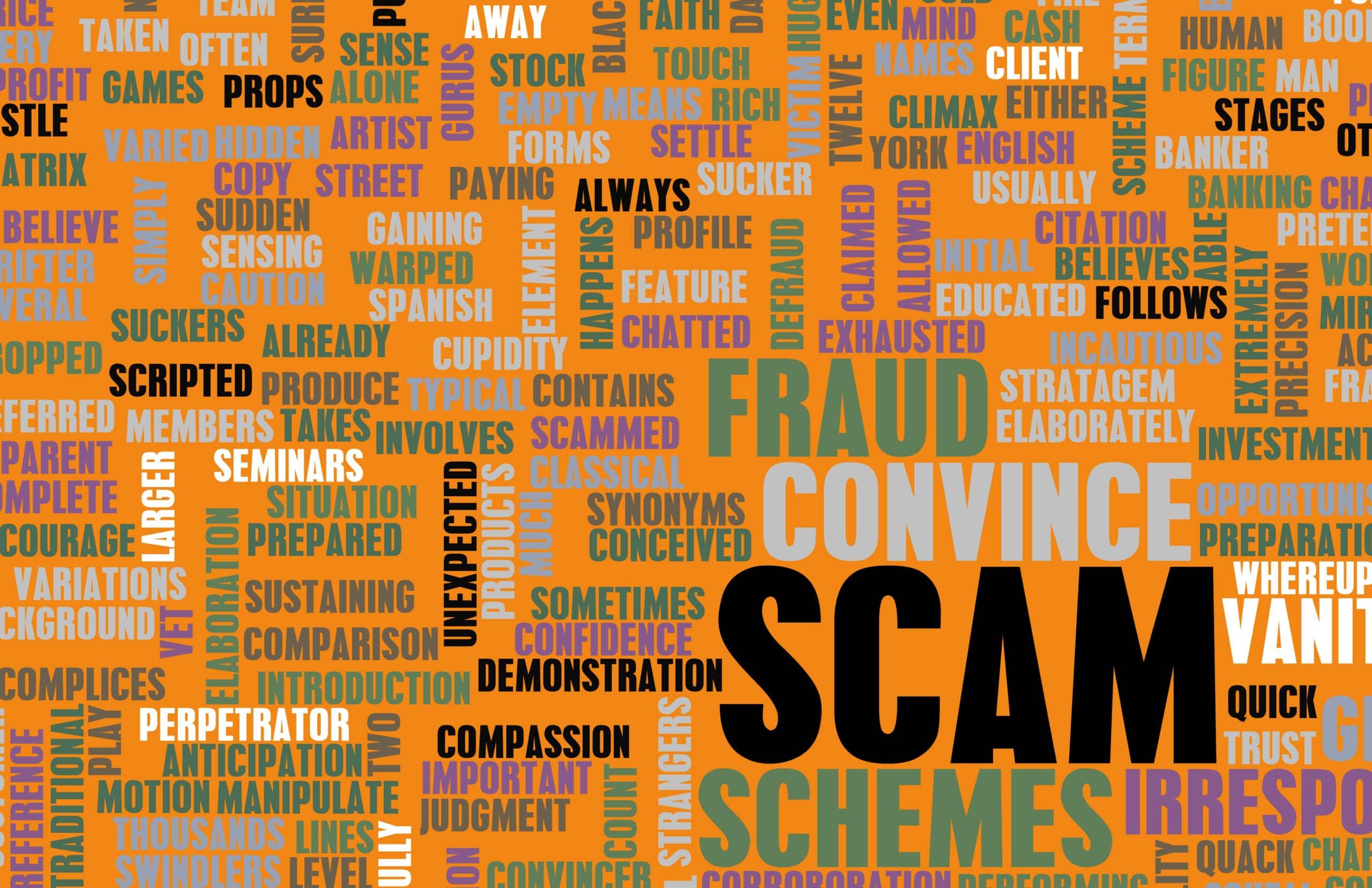Every day we get calls and receive emails from unknown sources and spammers. The following are not exhaustive lists of scams, as identity thieves are “evolving” with more sophisticated ways to breach cyber security.
Here are the top 10 scams from Consumer Reports:
Debt collection
Fake government officials – IRS, Social Security, State Department, etc.
Fake prizes, Sweepstakes, free gifts
Identity theft, Phishing, Pharming
Phishing: The fraudulent practice of sending emails purporting to be from reputable companies in order to induce individuals to reveal personal information, such as passwords and credit card numbers, by email, text, calls.
Pharming: The fraudulent practice of directing Internet users to a bogus website that mimics the appearance of a legitimate one, in order to obtain personal information such as passwords, account numbers, etc
Phone scams – grandparent scams, tech support
Loans scams/credit fixers
Internet merchandise scams
– Market research
– AirBnB scams
– Tickets
– Fake cancellation of Amazon orders (to phish credit card #s)
Automobile related (services, car sales online)
Credit bureau and related credit scams
Spoofing – in general, is a fraudulent or malicious practice in which communication is sent from an unknown source disguised as a source known to the receiver. Spoofing is most prevalent in communication mechanisms that lack a high level of security.
Hackers pose as:
– your bank
– credit card company
– A site like Dropbox or PayPal
Here are some of the old scams that are using new technology:
Robocalling technology using local phone numbers to spoof
Shimmer/skimmer: A Skimmer goes inside the credit card reader or ATM and requires training to recognize. A shimmer fits over the outside of a credit card reader or ATM machine and is installed easily and quickly anywhere. Both the skimmers & shimmers get the credit card and/or PIN info and sell the information to others.
Phishing emails and popups, malicious code in apps, phone calls
Gathering information from social media
Online dating
Online donations for tragic events – e.g., Notre Dame donations
And more…
A few ways of protecting ourselves against all types of scams, including identity theft:
– Validate communications from people and business you don’t know.
– Don’t click links in emails, social media or mobile apps purported to be from banks, government agencies or businesses. Instead, type the URL directly yourself. Roll your mouse over the link and review the URL to see if it is legitimate or not.
– Hang up on pre-recorded robocalls or only answer numbers in your phone book. You can always call back after callers leave a message.
– Avoid too-good-to-be-true offers
– Do not allow yourself to be forced into a quick decision. And be wary of scammers attempting identity theft.
About a2zCFO:
We help with any aspect of financial management from A to Z. By providing trusted financial advice, I create financial and goal clarity, resulting in increases in cash, profitability and sales all the while preparing the business strategically for a successful exit when the time is right.
Works at client’s location and directly with client’s staff;
Affordable and flexibility in hours – 4 hours a month to short term full time assignment;
Excels at messy and difficult clean up situations;
Meaningful financial reporting for management, bankers, and CPA’s. Tax returns completed by 4/15;
Cradle to grave services – from bootstrapped startups to exit transition service experience.
Please call me (925) 216-5058 or email: rolf@a2zCFO.com
A2Z CFO, we keep your ship on course.


